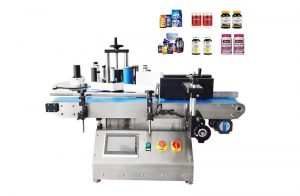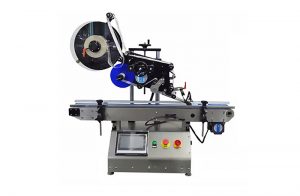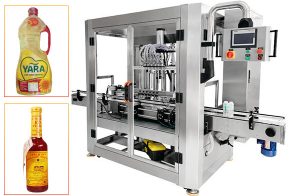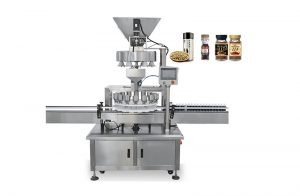In the intricate world of packaging and manufacturing, efficiency is paramount. Among the array of machinery employed to streamline processes, label machines stand out as unsung heroes. Yet, for those outside the industry, understanding the technical terminology can be daunting. So, what exactly is a label machine called?
The term commonly used to refer to label machines is “labeling machine.” This straightforward nomenclature encapsulates the primary function of these devices: applying labels onto various products or packaging with precision and speed. However, within the realm of labeling machinery, there exists a spectrum of specialized equipment tailored to diverse labeling needs.

One of the most prevalent types is the pressure-sensitive labeling machine. This versatile equipment adheres labels using pressure rather than heat or solvent, making it suitable for a wide range of materials and surfaces. Whether it’s glass, plastic, metal, or paper, a pressure-sensitive labeling machine ensures consistent application without compromising the integrity of the product.
For industries requiring high-volume labeling, automatic labeling machines reign supreme. These automated systems are designed to handle large quantities of products swiftly and efficiently. Equipped with advanced technology such as sensors and programmable controls, automatic labeling machines can seamlessly integrate into production lines, reducing manual labor and minimizing errors.
In contrast, semi-automatic labeling machines offer a more hands-on approach, ideal for smaller-scale operations or those with diverse labeling requirements. While they require some manual intervention, semi-automatic labeling machines still boast impressive accuracy and speed, making them a popular choice for businesses seeking flexibility without sacrificing efficiency.

Another category of labeling machinery is the sleeve labeling machine, commonly used for labeling bottles, containers, or cylindrical products. Unlike traditional adhesive labels, sleeve labels are applied by shrinking a pre-printed plastic sleeve onto the product using heat. This method provides a 360-degree coverage, allowing for vibrant designs and enhanced brand visibility.
Furthermore, in industries where compliance and traceability are paramount, specialty labeling machines like barcode labelers or RFID labelers play a crucial role. These machines encode essential information such as batch numbers, expiry dates, or tracking codes onto labels, enabling seamless inventory management and regulatory compliance.
Beyond the variations in labeling techniques, label machines also come in different configurations to accommodate specific production environments. From tabletop models for small-scale operations to fully integrated systems for large-scale manufacturing facilities, the diversity in design ensures that businesses of all sizes can find a labeling solution tailored to their needs.

In conclusion, while the term “label machine” may seem straightforward, the world of labeling machinery is vast and multifaceted. From pressure-sensitive labelers to sleeve labeling machines, each type serves a unique purpose in optimizing packaging processes. By understanding the diverse terminology and functionalities of label machines, businesses can make informed decisions to enhance efficiency and productivity.
Are you ready to streamline your labeling process and elevate your packaging game? Explore our range of cutting-edge labeling solutions tailored to your specific needs. Contact us today to discover how VKPAK can revolutionize your production line.












